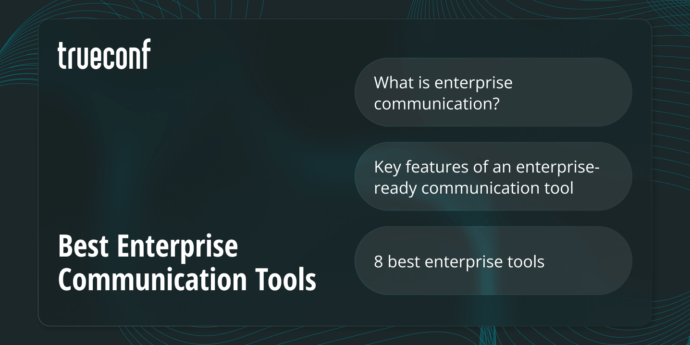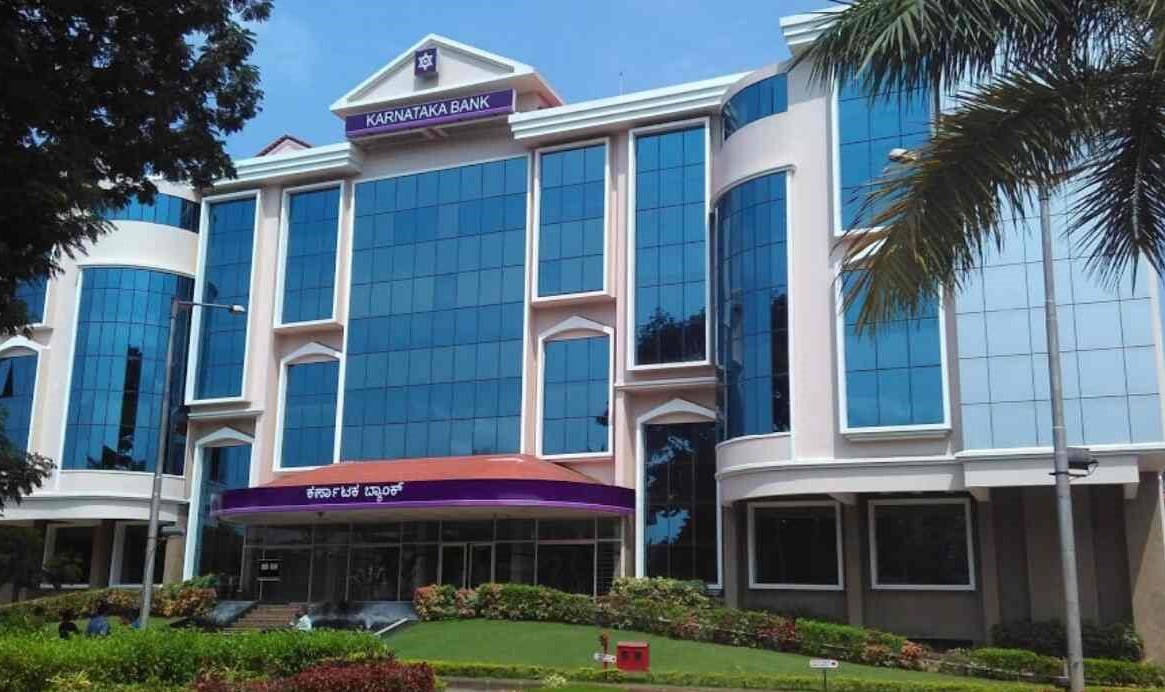Best Enterprise Communication Tools and Strategies for 2026

In 2026, business communication undergoes reconstruction in dynamic ways. Flexible timetables and international teams have expanded cooperation throughout various regions, while AI steadily transitions from experimentation to a core process element. According to Microsoft’s newest Work Trend Index, there’s a notable 16% annual increase in meetings held after 8 p.m., and almost one-third of all sessions now cross several time zones — clear evidence that coordination challenges still persist, merely appearing later within the daily schedule.
At the same moment, executives cannot tolerate unclear indicators: weak communication remains responsible for the majority of performance breakdowns, and groups that collaborate effectively can raise efficiency by nearly 25%. Combine this insight with Gallup’s report showing that worldwide engagement declined to 21% in 2024, and it becomes clear that the urgency of improving comms has reached unprecedented levels.
Meanwhile, AI is transforming the communication landscape more rapidly than any earlier surge. About three-quarters of knowledge employees currently rely on generative AI within their jobs, and Gartner predicts an accelerated transition toward multimodal, AI-enhanced applications over the coming decade — progress that remains tangible, even as experts caution about “agent-washing” and acknowledge that numerous agentic AI initiatives will be abandoned before producing measurable impact.
The takeaway for 2026 strategies: integrate AI where it clearly cuts meeting overload and messaging disorder, but maintain strict focus on business-case accountability.
This guide highlights the most effective enterprise communication platforms and approaches for 2026 — explaining how to select them, connect their systems, and create routines that sustain focus, honor time differences, and transform information exchange into a lasting competitive strength.
What Is Enterprise Communication?
Enterprise communication includes the systems, methods, and frameworks that support efficient information exchange and cooperation among employees, teams, and entire departments. It functions as the foundation of organizational connectivity — guaranteeing smooth distribution of insights and concepts that fuel performance, creativity, and expansion. In the current fast-moving, globalized business environment, effective enterprise communication ensures organizations remain adaptable, competitive, and quick to react to shifting market dynamics.
A crucial component of enterprise communication is unified communication (UC), which merges various technologies and platforms within a single, cohesive framework. UC promotes teamwork and overall productivity, elevates employee involvement, increases operational efficiency while cutting expenses, enhances customer satisfaction, and streamlines IT oversight through an integrated, centralized model.
Take your team communication to the next level with TrueConf!
A powerful self-hosted video conferencing solution for up to 1,000 users, available on desktop, mobile, and room systems.
Key Features of an Enterprise-Ready Communication Tool
Security & Compliance
In enterprise communication, trust fundamentally starts with security. A genuine enterprise-grade platform must safeguard every conversation, document, and meeting against unauthorized intrusion. End-to-end encryption guarantees that only verified participants can access or interpret the content, while on-premises deployment provides organizations with full authority over their information — eliminating dependence on external cloud services.
This protection is vital for sectors such as finance, healthcare, or government, where privacy is not optional but legally required. Picture a legal division reviewing confidential contracts or a research group exchanging proprietary blueprints — without adequate encryption, one breach could result in multimillion-dollar losses. Adherence to global standards like ISO/IEC 27001 and GDPR confirms that the platform operates within rigorous legal boundaries and satisfies demanding audit obligations.
Scalability & Performance
An enterprise platform must expand alongside the organization — without falling behind in capability. Whether it connects 20 users or 20,000 participants, the system should deliver consistent call clarity, rapid responsiveness, and continuous uptime. This reliability becomes crucial during all-hands meetings, major product unveilings, or international training sessions where even minor disruptions can halt progress.
Technologies such as clustering and federation enable companies to balance workloads across multiple servers or geographic regions, guaranteeing that performance stays stable even under intense demand. In real-world terms, this ensures that employees from New York to Tokyo can join the same conference and collaborate seamlessly as though sharing a single workspace.
Integrations with Your Tech Stack
The most effective communication solution never operates in isolation — it aligns perfectly with the existing digital infrastructure. Smooth integration with directory tools, CRMs, sales automation platforms, and project management systems guarantees that collaboration occurs precisely where daily work already takes place.
Using APIs, SDKs, SIP, or LDAP, the platform can seamlessly link with environments such as Microsoft Active Directory or Salesforce, enabling instant user setup and harmonized workflows. For instance, a sales department can initiate a video conference directly within its CRM, while HR can update employee information automatically without switching between different applications. Such integration ensures communication remains effortless and productivity remains consistent.
Selecting an enterprise communication platform shouldn’t happen in isolation it should serve the broader IT roadmap. For a pragmatic lens on vendor incentives, cost predictability, partnership models, EDI/data integration, and cybersecurity guarantees that impact collaboration rollouts, see this guide on how to build an IT strategy. Its six principles help teams pressure-test providers, align service levels with outcomes, and avoid nickel-and-diming as usage scales all critical when your UC stack becomes the backbone of cross-time-zone work.
Centralized Data Management
Visibility equals control. A unified management dashboard empowers IT departments to oversee user behavior, analyze performance indicators, and apply security configurations — all from a single interface. This approach streamlines everyday administration and enables swift intervention when potential problems arise before they impact end users.
Imagine an administrator detecting irregular login attempts or a spike in network bandwidth — immediate corrective measures can be taken without navigating several disconnected systems. Centralized supervision guarantees that every component of the communication framework operates cohesively, securely, and with maximum efficiency.
Ease of Administration
Complicated infrastructures should not result in complicated oversight. Automation, permission-based access, and directory alignment relieve IT departments from repetitive processes and minimize potential mistakes. For example, when a new staff member is added, the system can instantly generate their profile, allocate appropriate rights, and synchronize data across all divisions.
Access control based on roles guarantees that managers, moderators, and standard users receive exactly the permissions they require — neither excessive nor insufficient. This approach not only conserves valuable time but also strengthens overall governance. The more seamless the administration becomes, the quicker organizations can roll out updates, integrate new users, and concentrate on long-term strategic goals rather than routine maintenance.
User Experience & Adoption
Even the most secure or scalable solution will struggle if employees perceive it as cumbersome. A consistent, user-friendly interface across desktop, mobile, and meeting room devices guarantees seamless communication — whether teams operate in the office or remotely. When users no longer need to figure out how to access a meeting or locate a message, adoption evolves naturally and sustainably.
Picture a global marketing group collaborating from laptops, tablets, and large conference displays — all within one unified environment. An exceptional user experience eliminates friction, promotes teamwork, and transforms communication platforms from “just another corporate tool” into an everyday practice that fuels creativity and collective engagement. For BPO teams managing client operations across geographies, this seamless experience is critical to efficiency and productivity.
The 8 Best Enterprise Communication Tools for 2026
Not all communication platforms are built the same. Before you invest, make sure your provider can deliver the security, scalability, and reliability your business truly needs.
|
Platform |
Core Focus |
Key Features |
Interoperability |
Cross-platform Availability |
Customer Support |
Industry Fit |
|---|---|---|---|---|---|---|
|
TrueConf Server / Enterprise |
Secure on-premises video collaboration and internal communication |
Self-hosted deployment, LDAP/SIP/H.323 integration, centralized admin console |
Full SIP/H.323, WebRTC, REST API |
Windows, macOS, Linux, iOS, Android, room systems |
24/7 enterprise SLA, personal onboarding |
Enterprise, Government, Finance, Education, Healthcare |
|
Microsoft Teams |
Unified communication within Microsoft 365 |
Chat, meetings, file sharing, workflow automation |
Microsoft 365, SIP gateway, Power Platform |
Windows, macOS, iOS, Android, Web |
24/7 Microsoft support, admin portal |
Enterprise, Corporate, Hybrid workplaces |
|
Google Workspace |
Cloud productivity and real-time collaboration |
Gmail, Meet, Chat, Docs, Drive, AI features |
Google APIs, WebRTC, SAML/SSO |
Any browser, iOS, Android |
Admin console, online support |
Tech, Education, SMB, Enterprise |
|
Slack |
Team messaging and workflow automation |
Channels, automation, integrations, file sharing |
2,600+ apps, APIs, webhooks |
Desktop, mobile, browser |
24/7 Enterprise Grid support, community forums |
Startups, IT, Marketing, Enterprise |
|
Zoom |
Video conferencing and webinars |
HD video, breakout rooms, chat, whiteboard |
APIs, SDKs, integrations with Teams & Slack |
Windows, macOS, iOS, Android, Web |
Global 24/7 support, learning center |
Education, Enterprise, SMB, Events |
|
Asana |
Project and workflow management |
Tasks, timelines, automation, dashboards |
APIs, Slack, Teams, Zapier |
Web, desktop app, mobile |
Help center, business support |
Media, Tech, Operations, Enterprise |
|
Pexip |
Secure and interoperable video infrastructure |
Hybrid/on-prem deployment, analytics, room management |
Microsoft Teams, Google Meet, SIP/H.323, WebRTC |
Desktop, browser, room systems, mobile |
Dedicated enterprise SLA support |
Government, Defense, Healthcare, Manufacturing |
|
Cisco Webex |
Enterprise-grade video conferencing and hybrid work |
AI noise removal, Control Hub, messaging, webinars |
SIP, APIs, Microsoft 365, Salesforce |
All major platforms + Webex Devices |
24/7 enterprise SLA, customer success programs |
Enterprise, Finance, Public Sector |
1. TrueConf Server / TrueConf Enterprise
Best for: Private and secure video meetings, internal collaboration, and enterprise-wide communication
G2 rating: 4.7/5
Notable customers: Commercial Bank of Kuwait (Kuwait), Banpara Bank (Brazil), Department of Justice and Home Affairs (Switzerland), Agency for Services and Payments (France)
TrueConf is built for organizations that don’t compromise on privacy. Hosted entirely within your infrastructure, it gives you complete ownership of your communication environment — no cloud, no third-party servers, no data leakage. With rich interoperability, powerful APIs, and full customization, TrueConf scales from private companies to national-level deployments, combining enterprise-grade security with exceptional video quality.
|
Feature |
Benefit |
|---|---|
|
On-premises deployment |
Guarantees complete control over data and compliance with internal security policies |
|
Integration with LDAP, SIP/H.323, and APIs |
Connects effortlessly with enterprise systems, room devices, and third-party solutions |
|
Centralized admin console |
Simplifies system management, monitoring, and analytics |
|
Cross-platform clients |
Provides a consistent experience across desktop, mobile, and meeting room systems |
|
Offline operation support |
Enables secure communication in isolated or restricted networks |
Customer Feedback
“We keep up with the times and implement cutting-edge IT services that drive the economics’ growth. The issue with choosing a video communication solution for Karnataka Bank is resolved. TrueConf Server has all the features particularly crucial in the banking sector where secure and reliable communication is paramount. TrueConf solutions align perfectly with our commitment to ensuring seamless and secure communication channels for the bank’s employees across all branches.”
KM Raghuraj
Techser Power Solutions Pvt Ltd. representative
2. Microsoft Teams
Best for: Cloud-based collaboration, team chat, and enterprise communication within Microsoft 365
G2 rating: 4.4/5
Notable customers: Accenture, Pfizer, Continental, L’Oréal
Think of Microsoft Teams as the command center for modern collaboration — where chats spark innovation, meetings become action, and documents evolve in real time. Built on the powerhouse of Microsoft 365, it turns remote work into connected work, blending security, scalability, and simplicity like few others can.
|
Feature |
Benefit |
|---|---|
|
Deep Microsoft 365 integration |
Connects Outlook, SharePoint, and OneDrive into one seamless flow |
|
All-in-one communication |
Chat, call, and meet without switching apps |
|
Real-time document collaboration |
Edit, comment, and co-create with your team live |
|
Enterprise-grade security |
Keeps every message and file protected |
|
Rich app ecosystem |
Customize workflows with 700+ integrations |
|
Global scalability |
Grows effortlessly with your organization |
3. Google Workspace
Best for: Cloud-based productivity, real-time collaboration, and seamless team communication
G2 rating: 4.6/5
Notable customers: Spotify, Airbus, Colgate-Palmolive, Verizon
Google Workspace reimagines the modern office for the cloud era. Combining communication, collaboration, and creation under one digital roof, it empowers organizations to work smarter and faster. With built-in AI intelligence, seamless file sharing, and enterprise-grade security, Workspace helps teams transform everyday tasks into meaningful progress.
|
Feature |
Benefit |
|---|---|
|
Unified communication tools |
Integrates Gmail, Chat, and Meet for effortless collaboration |
|
Real-time document collaboration |
Enables instant co-editing across Docs, Sheets, and Slides |
|
Secure cloud storage |
Offers advanced protection and file organization with Drive |
|
Smart productivity features |
Uses AI to enhance focus, scheduling, and content creation |
|
Enterprise-level security |
Ensures compliance and data protection globally |
|
Integration ecosystem |
Expands capabilities through thousands of Marketplace apps |
4. Slack
Best for: Team messaging, workflow automation, and real-time collaboration
G2 rating: 4.5/5
Notable customers: IBM, Target, Airbnb, Oracle
Slack redefined how teams talk, share, and get things done. It’s more than just chat — it’s where conversations become decisions, and work happens in context. With organized channels, integrated apps, and built-in automation, Slack keeps teams aligned and energized — no matter where they are.
|
Feature |
Benefit |
|---|---|
|
Organized channels and threads |
Keeps conversations focused and searchable |
|
Huddles and video clips |
Enables quick, human interactions without formal meetings |
|
Workflow automation |
Simplifies routine tasks through Slack’s no-code automation tools |
|
App integrations |
Connects with 2,600+ tools like Google Drive, Asana, and Zoom |
|
Enterprise-level security |
Provides encryption, compliance, and secure identity management |
|
Powerful search |
Helps find messages, files, and knowledge in seconds |
5. Zoom
Best for: Video conferencing, webinars, and hybrid team collaboration
G2 rating: 4.8/5
Notable customers: Capital One, Nasdaq, Dropbox, Zendesk
Zoom is where teams meet, brainstorm, and build connection — no matter the distance. Known for its clarity and ease of use, Zoom blends video, chat, phone, and events into one unified experience. From spontaneous huddles to global conferences, it keeps every face, voice, and idea just one click away.
|
Feature |
Benefit |
|---|---|
|
Ultra-reliable video meetings |
Keeps communication crisp and lag-free |
|
Webinars and large events |
Hosts interactive sessions for up to thousands |
|
All-in-one communication |
Combines chat, calls, and meetings seamlessly |
|
Collaboration tools |
Makes teamwork dynamic with whiteboards and reactions |
|
Security and compliance |
Protects users with encryption and access controls |
|
Integration ecosystem |
Connects easily with productivity and CRM platforms |
6. Asana
Best for: Project management, task coordination, and team productivity tracking
G2 rating: 4.4/5
Notable customers: Amazon, NASA, Spotify, The New York Times
Asana turns chaos into clarity. It’s where teams map out goals, assign tasks, and see progress unfold in real time. Whether you’re managing complex projects or simple to-do lists, Asana keeps everyone on the same page — connecting strategy with execution through an elegant, intuitive interface.
|
Feature |
Benefit |
|---|---|
|
Task and project tracking |
Visualize progress with lists, boards, or timelines |
|
Goal and OKR alignment |
Links day-to-day tasks to big-picture company objectives |
|
Automation rules |
Reduces manual work with customizable workflows |
|
Real-time collaboration |
Keeps teams updated with live comments and notifications |
|
Reporting and dashboards |
Provides clear insights into productivity and project health |
|
Integrations |
Connects with Slack, Google Workspace, Zoom, and 200+ other tools |
7. Pexip
Best for: Secure, interoperable video conferencing across devices, protocols, and platforms
G2 rating: 4.4/5
Notable customers: Fortune 50 Manufacturing Company (USA), Henner Group (France)
Pexip is an enterprise-grade video collaboration platform designed for organizations that value control, security, and flexibility. Unlike many cloud-only solutions, Pexip offers full deployment freedom — from private servers to global cloud. Its interoperability connects Microsoft Teams, Google Meet, and SIP/H.323 systems, making it a trusted choice for governments, healthcare, and defense sectors.
|
Feature |
Benefit |
|---|---|
|
Broad interoperability |
Bridges legacy systems with modern meeting platforms |
|
Secure and compliant infrastructure |
Meets strict data protection and privacy requirements |
|
On-premises or hybrid hosting |
Gives organizations full control over data and performance |
|
Custom UI and branding |
Provides a tailored meeting experience |
|
Scalable design |
Grows with enterprise and government-level demands |
8. Cisco Webex
Best for: Enterprise-grade video conferencing, secure collaboration, and hybrid work environments
G2 rating: 4.5/5
Notable customers: AT&T, Siemens, Broadcom, Aston Martin
Cisco Webex isn’t just for meetings — it’s the command center of hybrid work. Backed by Cisco’s unmatched security and AI innovation, Webex connects people, devices, and ideas across borders. From immersive video to smart meeting rooms, it turns collaboration into a frictionless, intelligent experience.
|
Feature |
Benefit |
|---|---|
|
Unified communication platform |
Meetings, chat, and calls — all in one secure space |
|
AI-powered intelligence |
Translates, transcribes, and cleans up audio in real time |
|
Enterprise-grade protection |
Built on Cisco’s leading cybersecurity architecture |
|
Smart hybrid work tools |
Integrates with Webex devices for modern meeting spaces |
|
Extensive integrations |
Works with Microsoft, Google, Salesforce, and others |
|
Global reliability |
Delivers enterprise-level performance and uptime |
Conclusion
The collaboration software ecosystem has never been broader — or more critical to success. From cloud-based environments such as Microsoft Teams and Google Workspace to dynamic communication centers like Slack and Zoom, every platform represents a distinct perspective on how teams interact and accomplish their goals. Tools such as Asana introduce organization into daily workflows, while Pexip and Cisco Webex combine enterprise-level reliability with adaptability and strong security measures. For enterprises requiring full command over their data and internal systems, TrueConf Server and TrueConf Enterprise emerge as powerful self-hosted solutions designed for confidentiality, stability, and long-term sustainability.
As hybrid and remote work environments keep transforming, success depends not merely on selecting the trendiest platform — but on adopting one that truly aligns with an organization’s culture, compliance standards, and operational scale. Whether the priority is transparency, security, or integration capability, the future of collaboration belongs to platforms designed to adapt around people — rather than forcing people to adapt around technology.
About the Author
Olga Afonina is a technology writer and industry expert specializing in video conferencing solutions and collaboration software. At TrueConf, she focuses on exploring the latest trends in collaboration technologies and providing businesses with practical insights into effective workplace communication. Drawing on her background in content development and industry research, Olga writes articles and reviews that help readers better understand the benefits of enterprise-grade communication.




Follow us on social networks